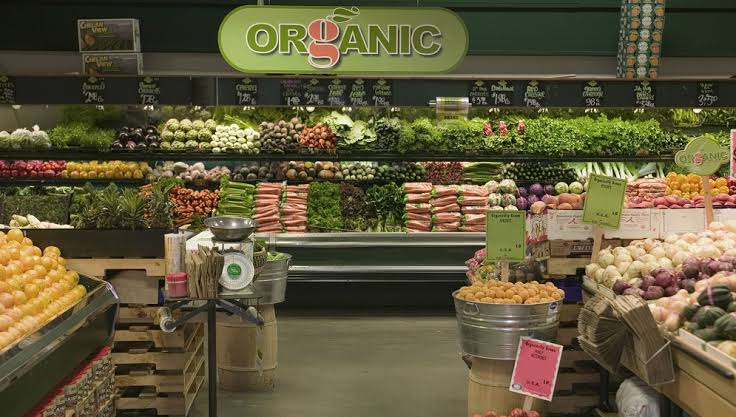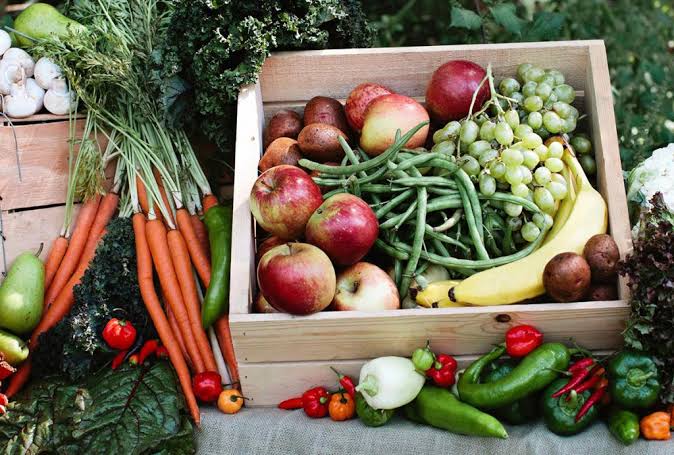The certification of organic products process involves inspection of the organic farms, food companies by inspectors. These inspectors are also inspected by accreditation agencies to ensure that standard or quality is not compromised.
When a product is certified as organic, a certificate and a trading schedule listing all the crops, livestock or products certified to trade as organic is issued.
Products are labeled or certified organic when it has been produced and processed in an ecologically sound manner. The label could differ depending on certification body but it can be taken as an assurance that the essential elements constituting an organic product have been met from the farm to the market.
Certified organic products are those which have been produced, stored, processed, handled and marketed in accordance with precise technical specifications (standards) and certified by a certification body.
It means that for a product to be labeled organic, a government approved certifier inspects the farm where the food is grown to make sure the farmer is following all the rules necessary to meet organic standards i.e. product has been produced and processed in an ecologically sound manner.
Companies that handle or process organic food before it gets to the supermarket or restaurant must be certified too. i.e. organizations working up and down the supply chain – from farmers, to packers, to food processors and organic retailers have to meet organic standards and prove it to the certification body.
Certification Procedure
1. Inspection; The organic farms and food companies are thoroughly inspected at least once a year. Information obtained is recorded to show that the standards are being met.
2. Once the farms and companies are certified to have met the organic standards, they are issued a certificate and a trading schedule. It lists all the crops, livestock or products certified to trade as organic. This certificate acts like a passport and is necessary to prove the organic status of the goods when they are sold on.
3. Products imported must carry a organic certificate as well as certificate of import.
Organic certification also involves inspection of organic farm or food company inspectors. This is carried out by accreditation bodies.
Read Also: Astilbe Flowers – All you need to know
Benefits of Certification of Organic Products
Certification of organic products has the following benefits:
1. It helps producers and handlers receive premium prices for their products
2. Producers and handlers can access fast growing local, regional and international markets
3. Certification supports local economies
4. It provides opportunity to access additional funding and technical assistance
5. Certification enhances marketing of products to consumers
Read Also: Aster Flowers – All you need to know
Market of Organic Foods

Once certified a product is certified as organic, a certificate and a trading schedule listing all the crops, livestock or products certified to trade as organic is issued. This certificate acts like a passport and is necessary to prove the organic status of the goods when they are sold.
The price of organic food is generally higher than that of conventionally grown food. Depending on the product, season, and demand the price of organic food can be anywhere from 10% below to more than 100% above that of conventional grown produce.
Manufacturers can use organic seals when marketing their products. Products that contain
100% organic ingredients may be labeled 100% organic. Generally most purchased organic foods are fruits and vegetables as they account for over 70% of organic food purchases.
In conclusion, certification that a product is organic confirms that the product has been produced and processed in an ecologically sound manner. A certificate alongside a trading schedule listing all the crops, livestock or products certified / labeled to trade as organic is issued. When the products are sold, the label proves the organic status of the goods.
Certified organic products are those which have been produced, stored, processed, handled and marketed in accordance with precise technical specifications (standards) and certified by a certification body.
The process involves inspection of the organic farm, food companies by inspectors who are also checked by accreditation agencies. Once certified a product is certified as organic, a certificate and a trading schedule listing all the crops, livestock or products certified to trade as organic is issued.
This certificate acts like a passport and is necessary to prove the organic status of the goods when they are sold. Certification of organic products is beneficial as it helps producers and handlers receive premium prices for their products and also helps then access fast growing local, regional and international markets among other benefits.
Read Also: Environmental and Health Effects of Wastes

